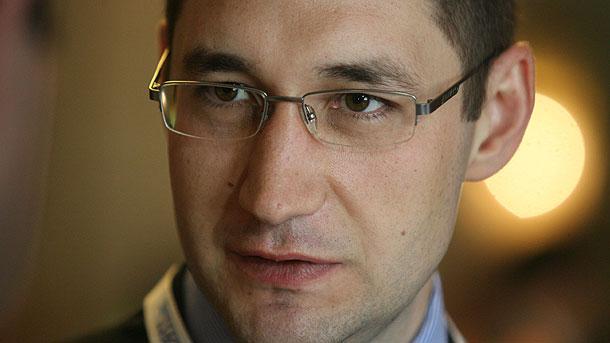Bulgaria has received from the EU a total of 7.7 billion euro since 2007 under various programs and funds, the statistics of the Bulgarian Central Bank show. We can say that changes in Bulgaria after its EU accession in the beginning of 2007 have been positive. Some sectors of the economy were successful under the new conditions other faced hard times. Despite the EU funds a number of companies had to face strong competition and went bankrupt.
 Here is more about the Bulgarian economy in the EU in an interview with macro-economist Georgi Angelov.
Here is more about the Bulgarian economy in the EU in an interview with macro-economist Georgi Angelov.
Where would Bulgaria have been if it had not joined the EU?
“In this difficult crisis period we could probably see that Bulgaria had a great chance to become part of the European Union. Otherwise we would have been in the situation of Ukraine. Bulgaria became part of the EU and NATO and made some significant steps towards integration, which help us now in times of crisis. We have access to the EU labor market, universities, and opportunities for development.”
But why is Bulgaria lagging behind other EU Member States?
“I don’t think that we are lagging behind other members. It is just that we cannot catch up with them. The countries that joined the union in 2004 were more prepared than us and better results were achieved. Bulgaria became part of the union right before the crisis. The question should be if Bulgaria manages to fully use the opportunities provided by the EU. The answer is negative. Companies and businessmen do what they can but it is not the same with state institutions.”
What are the economic sectors in Bulgaria that benefited from the EU membership?
“The sectors that were more prepared in respect to the global market benefited from the membership. We see that the Bulgarian export is managing well now. Those who were looking only to the internal market and did not make efforts to use the opportunities of the EU suffered losses.”
What is the true effect of the EU funds on the Bulgarian economy?
“The European funds were spread among all ministries in order for everyone to absorb some financing. However, there is no clear view and we do not have a plan for the use of this money in order to accomplish a particular goal. That is why we cannot see a significant result in the economy. The quality of spending is really important. We must spend funds effectively and this is not what happened in some cases.”
What is your assessment for the past 7 years?
“Bulgaria did not have much luck related to the fact that 5 out of 7 years of membership have been marked by global economic crisis. That is why we should not expect swift economic changes. However, the EU Membership is beneficial for Bulgaria and benefits will grow in the future. The biggest effect of European funds is that they give an impetus for reforms. I think that in the next 7 years we could catch up with other EU members.”
English version: Alexander Markov
In 11 district cities in Bulgaria, 1 square meter of residential space costs under EUR 1,000. In 13 district cities, the price ranges from EUR 1,000 to EUR 1,400. In Sofia and Varna, 1 square meter of residential space costs EUR 2,400, National Real..
On the last day of last year, the Egyptian Minister of Investment and Foreign Trade Hassan al-Khatib awarded a total of nine gold licenses at a ceremony at the General Agency for Investment and Free Zones, which was also attended by the Bulgarian..
Based on preliminary data, the Finance Ministry expects a deficit of around BGN 6.1 billion ( €3.11 billion), or 3% of the projected gross domestic product (GDP), at the end of 2024. "Estimates suggest that the deficit will show an improvement..

+359 2 9336 661
